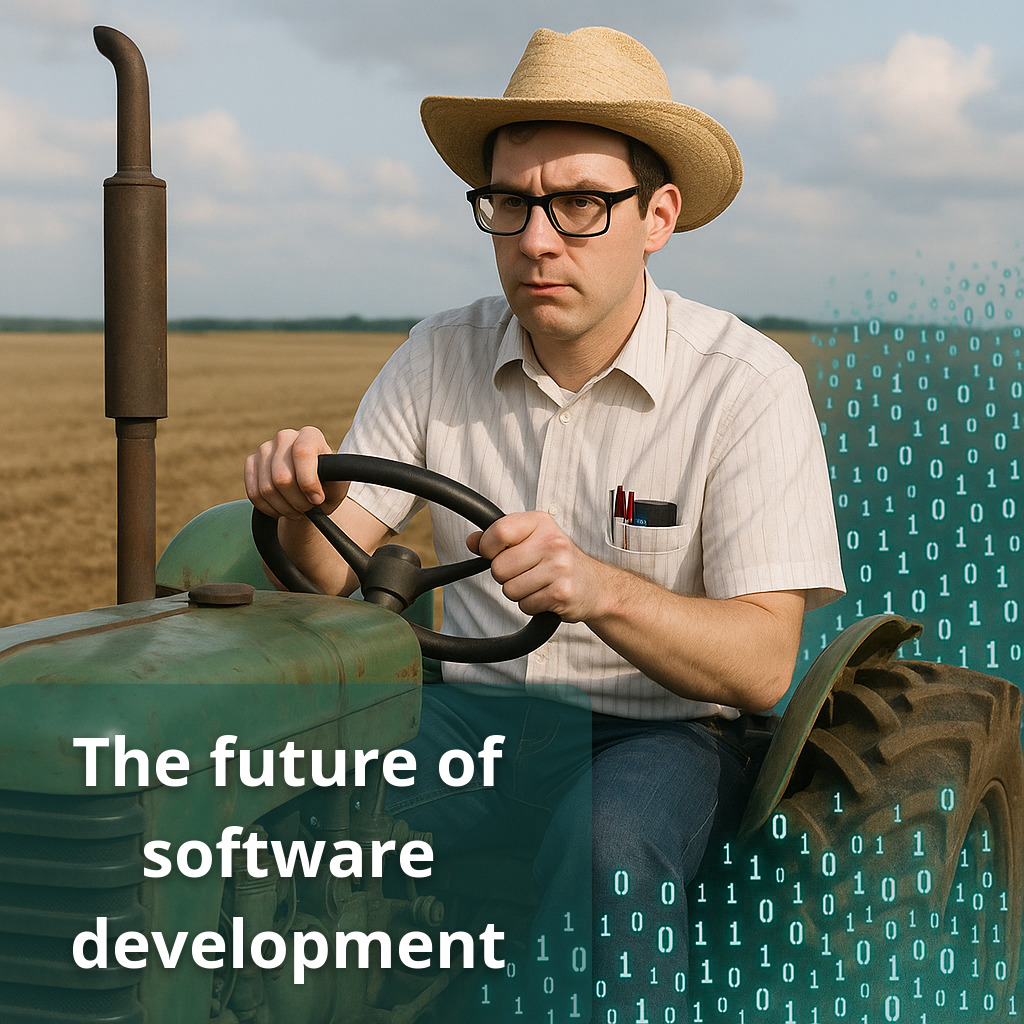The Great Code Revolution

We're living through one of those moments in tech history that'll probably have its own chapter in future computer science textbooks. AI tools that can actually write code – and write it well – are no longer science fiction. They're here, they're getting better fast, and honestly? They're starting to freak some people out.
But before we all panic about robots taking over our jobs, let me share a little historical perspective that might help us understand what's really happening here.
The Farming Revolution
Here's a fun fact that'll blow your mind: back in 1820, about 72% of Americans worked in farming. Fast forward to 1920, and it was down to 26%. Jump to 2020? Just 1% of the US labor force works in agriculture.
Sound familiar? Because I think we're about to see the same thing happen to software development.
Where We Are Right Now
AI coding tools today can already perform at the level of a junior programmer – and that's being conservative. Are they perfect? Nope. Do they sometimes write code that makes you go "what were you thinking?" Absolutely.
But they're improving at a pace that's honestly a little scary. What took a junior dev hours to figure out, AI can now do in minutes. And unlike human developers, AI doesn't get tired, and doesn't spend half the morning browsing Reddit.
The Game-Changing Moment
Anthropic recently released something that feels like a real watershed moment: Claude Code with Opus 4. I've been testing it out, and wow – this thing is to programming what ChatGPT 3.5 was to chatbots. It's not just another incremental improvement; it feels like a genuine leap forward.
The setup is dead simple, the user experience is actually enjoyable (which is saying something for developer tools), and most importantly – it actually works. It's not cheap, but based on my initial testing, it's absolutely worth every penny.
Tools like this aren't just helping you write code faster; they're changing the entire nature of what it means to "program" something.
What This Means for Developers
So, are we all about to be replaced by AI? Well, yes and no. There will definitely be far fewer traditional software developers in the future. But just like farming didn't disappear – it evolved – software development is going to transform into something different.
Future developers won't spend most of their time writing code line by line. Instead, they'll be the ones driving the AI "tractors" as...
- Architects: Designing systems, making high-level decisions about how applications should work, and figuring out what problems need solving in the first place.
- AI Whisperers: Getting really good at communicating with AI tools, knowing how to prompt them effectively, and understanding their strengths and limitations.
- Quality Controllers: Reviewing AI-generated code, testing it, and making sure it actually does what it's supposed to do (and doesn't do what it's not supposed to do).
- Integration Specialists: Taking AI-generated components and weaving them together into cohesive, maintainable systems.
The Skills That Will Matter
If you're a developer (or want to become one), this shift means some skills are going to become way more valuable than others. Deep knowledge of syntax and memorizing API documentation? Probably less important. Understanding system design, user experience, business logic, and how to effectively collaborate with AI tools? Super important.
It's kind of like how modern farmers don't need to know how to sharpen a scythe, but they better understand GPS-guided tractors, soil sensors, and crop management software.
The Exciting Part
Here's what gets me really excited about all this: we're about to democratize software development. People with great ideas but limited coding skills will be able to build working prototypes.
At the same time, experienced developers who embrace these tools are going to become incredibly productive. Instead of spending hours pounding out code, they can focus on the creative, strategic work that humans are still way better at.
The Bottom Line
Every major technological shift creates new opportunities alongside the disruption. The developers who adapt, learn to work with AI tools, and focus on the uniquely human aspects of software development are going to thrive.
We're not witnessing the end of software development; we're watching it evolve into something more powerful, more accessible, and honestly, probably more fun. The future belongs to developers who can drive the AI tractors.